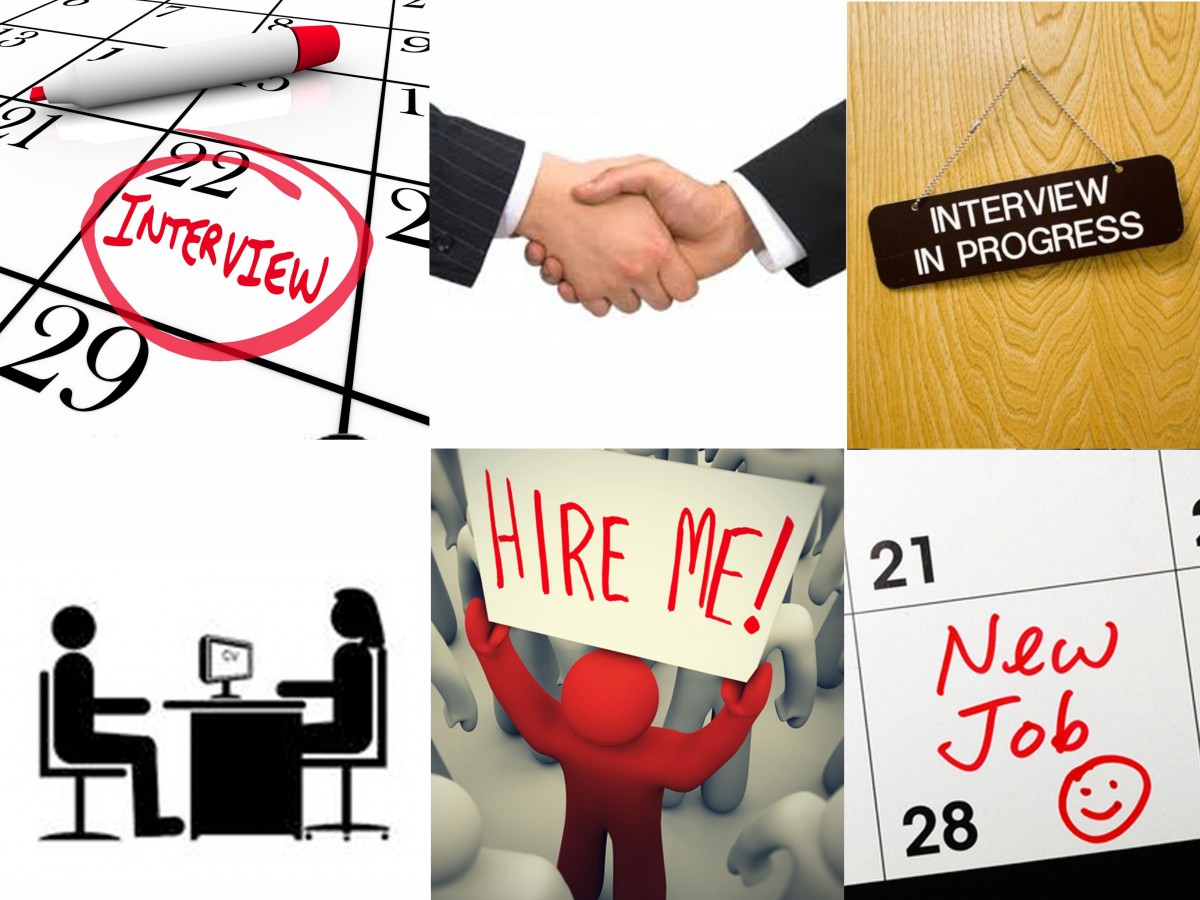- Interview Prep
- Star Method For Answering Questions
- Interview Preparation Checklist
- Star Interview Questions
- Words To Use In An Interview
- Mock Interview Preparation
- How To Make A Good Impression
- Bring Writing Samples
- How To Relax Before An Interview
- Interview Coaching
- Common Video Interview Mistakes
- Common Phone Interview Mistakes
- How To Ace Your Interview For A Remote Job
- Good Weaknesses For A Job Interview
- Good Strengths For A Job Interview
- Talk About Being Laid Off
- How To Prepare For A Phone Interview
- How To Decline An Interview
- How Early Should You Arrive For An Interview
- Types Of Interviews
- Communication
Recruiters and hiring managers rarely call candidates anymore, so if you’re on the hunt for a job, you should be keeping an eye on your inbox.
But what do you do when you finally get an email asking you to schedule an interview? It can be a bit daunting trying to figure out what tone to use, what information is necessary, and what etiquette to follow.
We put together this guide to show you what an email with an interview request looks like, how you should respond, and an email template to follow. We’ll throw in a few email writing tips, too, so you can stand out when you send your response.
And if you’re looking for a job, here are the five most in demand jobs right now:
How to Respond to an Interview Request Email
Here’s a step-by-step process for how to respond to an interview request email:
-
Open with gratitude and enthusiasm. Right off the bat, you want to express how thankful you are for the opportunity and how excited you are for the chance to interview. You don’t have to go overboard — a quick thank you and a word like “thrilled” will suffice.
-
Provide availability. Most recruiters and hiring managers will give you a few different windows of times to choose from. Some might request that you suggest times.
Regardless, clearly indicate what days and times work best for you. If no times indicated in the invitation email work for you, feel free to make additional suggestions. It’s best to work your schedule around the interview slots offered, though, if you really care about the opportunity.
-
Provide requested details. Most interview invitations also come with instructions to follow for pre-interview admin-type stuff. You might have to email your resume, cover letter, references, etc. to additional people or answer a few questions.
Make sure that you read the invitation request clearly so that you don’t forget to include something that they asked you for.
-
Offer to provide more info at their request. It’s likely that they’ve got everything they need from you, but it’s a polite gesture to offer more details upon request.
-
Close with gratitude and enthusiasm. In one quick closing line, say thanks again and mention how you’re looking forward to the interview.
Example Response Emails for Interview Invitation
Once you checked your schedule and are ready to respond to the interview invitation, you can write a short email reply. Here’s a template for your response that you can edit and make your own. For this first example, we’ll write a response to the sample interview request above:
-
If the employer asks you to provide interview time availabilities
Hi Kim,
Thank you for reaching out. I’d love to join a phone interview with the team. This week, I’m free Wednesday from 1:30 pm to 4:45 pm, or Friday from 8:30 am to 12 pm. If those times don’t work, I’m free Tuesday and Thursday from 2:30 pm to 5 pm next week. The hiring team can reach me at 123-456-7890.
I’ve attached a list of my references’ contact information and a copy of my resume. Please let me know if there’s anything else you need from me.
Thank you again for the opportunity to interview, and I look forward to speaking with the team!
Kind regards,
Samantha Brown -
If the suggested interview times don’t work for you
Dear Mr. Doe,
Thank you for reaching out with the opportunity to interview. I’m happy to come into the office and interview with you. Unfortunately, the time you listed doesn’t work for me. Do you have any availability on Thursday afternoon or next Monday morning?
As you requested, I’ve attached my portfolio to this email for you to review. Please let me know if I can provide you with anything else ahead of our meeting.
I look forward to meeting you and learning more about the position.
Best,
Jane Doe - If the employer asks you to call to schedule an interview
- If the employer requests a few specific time slots
- If you were told to email someone else to schedule an interview
Dear Ms. Lorei,
Thank you for the invitation to interview for the Staff Accountant position at NewCorp. As requested, I will call tomorrow morning to schedule an interview time with your secretary.
Please let me know if there’s anything else you need from me before the interview and I look forward to our meeting.
Sincerely,
Jan Taylor(999)-222-333
Dear Jaime Gerzten,
Thank you for the interview invitation for the Sales Representative role at ABC Inc. — I’m thrilled for the chance to chat with some of the best in the business.
From the suggested time slots in your email, Thursday between 12-2 pm works best for me. I can also come in on Friday after 3:30 pm, if that would leave enough time for a full interview.
Thanks again for the opportunity, excited to learn more!
Warm regards,
Sally Jayce
Dear Ms. Yuerza,
I received an email from John Szitzer requesting that I contact you to schedule an interview for the Associate Editor position at Big Tech. Please let me know which dates and times work best for your schedule at your earliest convenience.
Thank you for considering me for the role and I’m looking forward to learning more about the position.
Sincerely,
John Spencer
What Is an Interview Request Email?
An interview request email is a message that a hiring manager or recruiter sends to a candidate to invite them to an interview.
Recruiters usually send an email to applicants after reviewing resumes and deciding to interview a handful of candidates. If you pass the initial resume review, you’ll be invited to interview. Sometimes hiring managers will directly call you if your phone number is on your resume or application, but most times, they’ll send a short email inviting you to interview.
These emails are informal, but they’re the first contact you’ll have with the company. It’s important to understand what they’re asking and sending back an appropriate response.
Invitations to interview usually include:
-
Clarification of the role you applied for.
-
Proposed interview dates and times.
-
Questions about when you’re free to interview.
-
Location or method (in-person, phone, or virtual) of the interview (or indication that a virtual meeting link will be sent after a time is confirmed).
-
Requests for extra documents (resume, cover letter, references, portfolio, etc.)
-
Name or position of the person who will be interviewing you.
The most important thing to do when you receive an interview invitation email is to read the email a few times, so you don’t miss any crucial details. You want to make sure your response fulfills all their requests, so reading over the email a few times will help you get everything over to the person you’re emailing.
You can also use this email as a chance to make sure you’re interviewing for the right job at the right company. Sometimes resumes get mixed up, so taking a second to make sure it’s a job you applied to and want to continue the application process for is essential.
Email Invitation to Interview Example
Here’s an example of an email invitation to interview, so you know what to look out for when a recruiter reaches out to you:
Dear Samantha,
Thank you for applying for our Account Manager position here at ABC Company. We’d like to invite you to a phone interview with our hiring team. Please send over a few times that you’re free this week or next, and we’ll find a time that works for everyone. We’d like you to talk to our Account Director, Bill Smith, and one of our current Account Managers so you can get a feel for the position.
We’d also like for you to send over any references you may have and resend your resume. Sometimes the documents get lost in the transition from our job board to the interview.
If you have any questions, don’t hesitate to contact me over email or give me a call. My phone number is in my signature.
Many thanks.
Kim Jones
HR Director
ABC Company
[email protected]
123-456-7890
Get A Higher Paying Job Now
Here are the five highest paying jobs that don’t require experience:
Interview Request Email Response Tips
After you’ve received your request and made sure you understand what’s expected of you, it’s time to draft your response. The most important thing is to make sure you include any information that’s asked of you. Each interview request email can be different, so pay close attention to what the company wants.
When writing your response, you should keep a few things in mind. Number one is making sure you send over any information requested from you (like times you’re available or a resume). Still, you also want to make sure you sound pleasant and professional.
Here are a few tips for responding to an email interview request:
-
Say thanks. You should start your email with a simple thank you. You can thank whoever emailed you for reaching out or taking the time to consider your application, but show them you’re grateful for the opportunity. Not everyone gets to the interview stage, so make sure to be polite and thank them.
-
Keep it short. These emails are just scheduling conversations, so don’t feel like you need to add a lot of fluff. Your recruiter or hiring manager will probably be thankful if you keep your messages short and to the point.
-
Answer any questions. If the recruiter asked you to answer questions, make sure you respond to all of them. They could ask for your availabilities or ask more specific questions about your experience or skills before officially putting your interview on the calendar.
Be sure to answer all questions they send over since they might be asking them as a quick pre-interview screen to make sure you’re right for the job.
-
Send a timely response. It’s a good idea to respond quickly to show your interest. You don’t want to keep a company waiting for your response, so just reply as soon as you see their email. Responding on the same day you receive the invitation email is ideal.
-
Confirm details. Something in the email may be unclear, or you might just want to double-check you have the date and time of the interview right, so you should always confirm the details.
You can say something as simple as “I look forward to speaking with you on [date of interview] at [time of interview]” at the end of your email.
-
Stay professional. Though these emails are short and friendly, you should still take them seriously. Don’t use any texting lingo or emojis so you can keep your response professional.
-
Add your contact info. Even if you have your email and phone number on your resume or job application, you should still give your contact information. This just makes it easier for future communication.
-
Use “reply all.” If multiple people within the company were included in the initial email you received, you should use the “reply all” function, so no one is left out. They were probably added since the interview scheduling affects them, so including them in your response will make it easy for everyone to stay up to date.
-
Review the job description. Double-check the job description, so you know this is a job you want to continue the application process for. It’s also an excellent opportunity to remind yourself of the job you applied to and get you started on your interview prep.
-
Proofread your message. Before hitting send, take a moment to reread your email. Check to make sure you gave the recruiter everything they asked for, you have the right interview time, and you didn’t make any spelling or grammar mistakes.
If you receive an interview request and you don’t want to go through with the interview, you’ll need to let the recruiter know. Even if you don’t want to interview with the company, you need to decline their offer politely since you don’t want to leave a bad impression.
For these cases, many of the same tips apply. You need to make sure you keep a professional tone, thank the recruiter for the opportunity, and give a short explanation as to why you won’t take the interview.
You don’t have to go in-depth about why you’re turning them down, but you should include a reason. Sometimes you sign a job offer with another company before an interview, or you’re just no longer interested in the position. Whatever the reason, you need to let the company know the situation politely.
Popular Jobs Urgently Hiring Near You
Here are the five most common jobs near you:
- Interview Prep
- Star Method For Answering Questions
- Interview Preparation Checklist
- Star Interview Questions
- Words To Use In An Interview
- Mock Interview Preparation
- How To Make A Good Impression
- Bring Writing Samples
- How To Relax Before An Interview
- Interview Coaching
- Common Video Interview Mistakes
- Common Phone Interview Mistakes
- How To Ace Your Interview For A Remote Job
- Good Weaknesses For A Job Interview
- Good Strengths For A Job Interview
- Talk About Being Laid Off
- How To Prepare For A Phone Interview
- How To Decline An Interview
- How Early Should You Arrive For An Interview
- Types Of Interviews
- Communication





